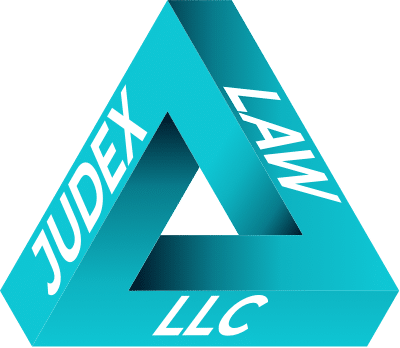In recent years, the Financial Industry Regulatory Authority (FINRA) announced that it was taking steps to improve protections for investors and safeguard market integrity more substantially. FINRA’s primary goal is to make sure that “the broker-dealer industry operates fairly and honestly.” To that end, FINRA proposed several amendments to its Codes of Arbitration Procedure to make the process for financial advisors seeking to expunge erroneous customer dispute information more transparent. The Securities and Exchange Commission (SEC) approved FINRA’s proposed amendments, completing the final step in making these rules official. In mid-August, FINRA issued Regulatory Notice 23-12, which announced that these amendments would take effect on October 16, 2023. As a financial advisor, it’s important to understand how these rule changes may impact your ability to expunge false customer dispute information or unfair disclosures from the Central Registration Depository (CRD) and BrokerCheck. This post will explore how the amendments may affect the financial industry and the steps you can take to protect your professional reputation in the face of false or misleading customer disclosures.
Understanding FINRA’s Expungement Process
First, it’s helpful to understand the general purpose of FINRA’s Dispute Resolution Services (DRS) arbitration forum. FINRA oversees over 624,000 brokers located throughout the country, and it recognizes that some individual brokers or larger securities firms may not always operate in good faith or strive for outstanding customer service. When a customer has a concern about a financial advisor, they may report the issue, and the customer dispute information will appear on the broker’s records stored in the CRD. However, this also means that the customer dispute information will appear on BrokerCheck, which is a free tool that the public may view at any time. According to FINRA’s DRS process, “Information about broker-customer disputes must be reported to the CRD system regardless of whether the firm or the broker believes the allegations are false, irrelevant or malicious. There is no proof required before these disputes are reported.” When a broker finds a baseless complaint on their record, they may make an expungement request using the arbitration forum provided by FINRA. If the arbitration panel grants the expungement request, the financial advisor must “obtain from a court of competent jurisdiction confirming the arbitration award, and then serve the confirmed award on FINRA.” Once FINRA receives the court order, it will follow through with the expungement of the erroneous customer dispute information.
How the Amended Rules Impact the Expungement Request Process
The SEC recently reviewed and accepted FINRA’s proposed rule changes to the expungement request process. These amendments impose more explicit restrictions and requirements on expungement requests filed by a customer, their representative, or an associated person separate from a customer arbitration. Below are some of the most significant changes to the current FINRA expungement request process to help you understand the potential impact of these newly enacted rules.
Three-Person Panel
Under the new rules, straight-in requests must be decided by a three-person panel made up of randomly selected experienced public arbitrators. These panel members must have enhanced expungement training, and they must have served as arbitrators through award on at least four customer arbitrations administered by FINRA or another SRO in which a hearing was held. When a straight-in request arises, an automated list selection algorithm will randomly select the three-panel members to minimize potential conflicts of interest or biases.
Limitations on Striking or Removing Arbitrators
When disputing parties move toward arbitration, the new rules prohibit these parties from agreeing to fewer than three arbitrators to determine their expungement requests. Additionally, the parties may not strike any of the selected arbitrators, stipulate to an arbitrator’s removal, or stipulate to the use of pre-selected arbitrators. Again, these rule changes aim to reduce bias and improve objectivity.
Notifying State Securities Regulators of Expungement Requests
One amended rule seeks to provide notifications to state securities regulators of all expungement requests. It also establishes a mechanism for state securities regulators to attend and participate in expungement hearings for straight-in requests, boosting transparency and encouraging more parties to play a role in the expungement request process.
Newly Imposed Time Limits on Filing Straight-In Requests
Another amendment to the rules imposes stricter time limits during which a party may initiate an expungement request. As of October 16, 2023, a financial advisor must file an expungement request within two years after the close of the customer arbitration or civil litigation. In situations where there is no customer arbitration or civil litigation associated with the customer dispute information, the financial advisor must initiate the expungement request within three years of the complaint being reported to the CRD.
Unanimous Agreement of Panel to Issue an Award
With the implementation of the randomly selected panel of qualified arbitrators, FINRA has also updated its rules to require the panel to agree unanimously in order to issue an award containing expungement relief. All three arbitrators must agree to grant expungement relief; without a unanimous decision, the expungement request will not be awarded.
How an Experienced Securities Law Attorney Can Help
As a financial advisor, your professional reputation matters. It can be devastating to receive a customer complaint, especially if the allegations are baseless, exaggerated, or downright false. Although you may pursue an expungement request without enlisting legal counsel, taking this step is highly recommended. Working with an experienced and knowledgeable securities law attorney can give you the clarity and confidence you need to move through every step of the process while navigating the newly adopted rule changes. Your attorney will work hard to identify the most strategic path forward to keep your reputation and professional future as bright as possible.
If you need help making a FINRA expungement request to remove erroneous customer dispute information from the CRD and BrokerCheck, Judex Law, LLC, is here to help. Call our office today at (303) 523-4022 to discuss your options with an experienced and caring securities law attorney.

